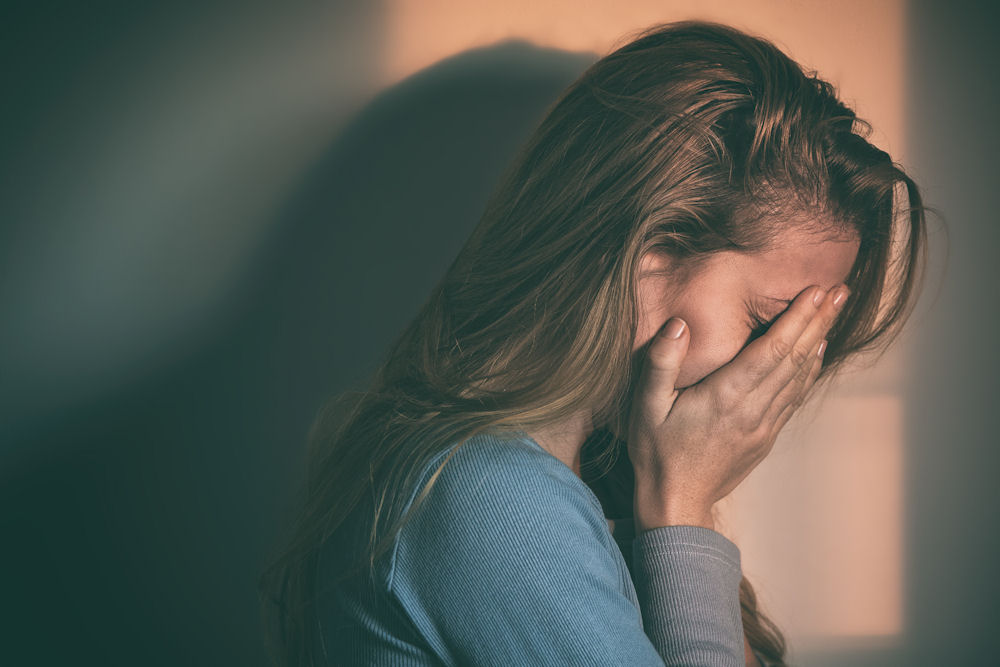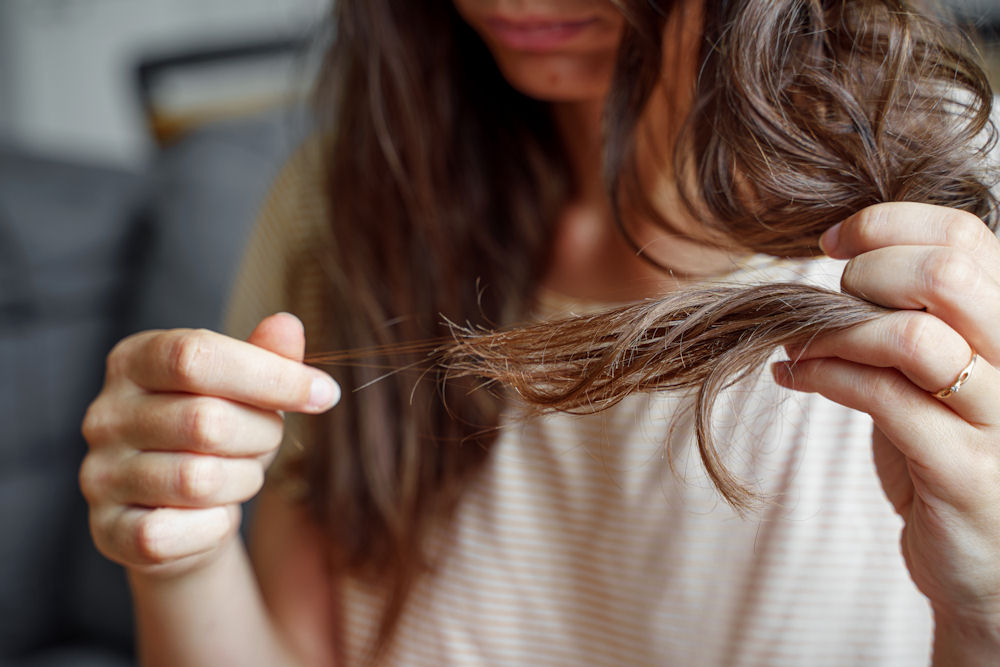Did you know that drug abuse can affect not only your health but also your hair? The impact of substance use on the body can disrupt the natural hair growth process, leading to thinning or even hair loss.
Drug abuse represents a significant global health issue, with estimates indicating that between 162 million and 324 million individuals engage in the use of illicit substances. It is important to understand which drugs may contribute to hair loss.
Drugs such as alcohol, cocaine, methamphetamine, and opioids can interfere with important nutrients, hormones, and circulation, all of which are necessary for healthy hair. Certain substances are known to contribute to hair loss, and many people ask, “What drugs make your hair fall out?” Recognizing the connection between drug abuse and hair loss is an important step toward recovery, as taking care of your overall health can help restore your overall well-being.
Laguna Shores Recovery in Dana Point, California specializes in recognizing the connection between drug abuse and hair loss. We provide treatment programs and therapy services to address the challenges you or a loved one are facing. Let’s unravel this issue together, one strand at a time.
Drug Abuse And Hair Loss: What Are the Causes?
On average, substances may remain detectable in your system for approximately 2 to 4 days following consumption, and they are associated with a wide range of adverse effects, such as anxiety, liver disease, heart disease, kidney damage, and respiratory issues, among others. A less frequently discussed consequence of drug use is hair loss.
Firstly, the use of drugs can disrupt the natural cycle of hair growth. This phenomenon is referred to as telogen effluvium, which occurs when hair follicles prematurely enter the resting phase of the hair growth cycle. To grasp this concept, it is essential to briefly review the hair growth cycle.
Another significant way in which drug use can lead to hair loss is through structural damage. Specifically, drug consumption alters the keratin composition of hair, resulting in deterioration and subsequent hair loss. Research examining the hair structure of individuals who use drugs has shown that excessive use can weaken and fracture hair strands, causing them to detach from the hair shaft. This process can lead to substantial hair loss in a relatively short period.
Finally, drug use imposes stress on both the body and mental well-being. Prolonged exposure to stress can result in severe hair shedding, which is also a factor contributing to telogen effluvium. Neglecting self-care, enduring stress, and facing increasing trauma can ultimately lead to hair loss.
How Does Substance Abuse Affect Hair Growth?
To understand how substance abuse impacts hair, let’s first talk about how hair grows. Hair growth occurs in a fascinating and complex cycle divided into three primary phases:
The longest phase lasts 2 to 7 years. During this period, hair follicles actively produce new hair, with around 85-90% of your scalp hair in this stage. The phase’s duration determines the maximum hair length.
A brief 2-3 week period where hair growth halts, and follicles shrink, detaching from the blood supply in preparation for the resting phase.
Lasting 3-4 months, this phase allows hair to rest before shedding to make room for new growth. Around 10-15% of scalp hair is typically in this phase, but hair loss becomes visible when more follicles enter it simultaneously.
Hair loss happens when the natural growth cycle is interrupted. Drugs and other substances can wreak havoc on your body—and by extension, your hair—by interfering with hormonal balance, blood flow, and nutrient absorption, all of which are essential for healthy hair growth.
Drug abuse stresses the body, depleting vital nutrients and causing inflammation that may affect the scalp. Over time, this can lead to hair follicles entering a prolonged resting phase or becoming damaged entirely, leading to noticeable hair thinning or bald patches.

What Drugs Make Your Hair Fall Out?
Several substances are particularly harmful to hair health. Here are a few common culprits:
Excessive alcohol consumption dehydrates the body, robbing hair follicles of the moisture and nutrients they need. Eventually, this can result in weak, thinning hair. Chronic alcohol use can also impair liver function, which affects how nutrients are processed and delivered to your hair and scalp.
Stimulants such as cocaine and methamphetamine increase stress on the body and disrupt hormonal balance, contributing to hair loss. These substances can reduce blood flow to the scalp, starving hair follicles of the oxygen and nutrients they require to thrive. Prolonged use can lead to significant thinning and even patchy bald spots.
Opioids often suppress appetite and lead to malnutrition. Without proper nutrition, your body prioritizes vital functions over hair growth, causing hair to fall out. Additionally, long-term opioid use can weaken the immune system, potentially leading to scalp infections or other conditions that impair hair growth.
While anabolic steroids might help build muscle, they often cause hair thinning or loss by increasing levels of dihydrotestosterone (DHT). DHT is a hormone strongly linked to male and female pattern baldness. Using steroids can accelerate this process, particularly in individuals predisposed to genetic hair loss.
Though technically used in a medical context, certain drugs used for chemotherapy are notorious for causing hair loss. Chemotherapy targets rapidly dividing cells, including those in hair follicles. While this type of hair loss is usually temporary, it can be emotionally challenging for those undergoing treatment.

What Are the Effects of Substance Abuse on the Body?
Substance abuse affects nearly every system in the body, and its impact on hair health is both direct and indirect. Here’s a look at how substance abuse connects to hair loss:
Substance abuse often leads to poor nutrition, causing deficiencies in vital nutrients like iron, vitamin D, biotin, and zinc. These deficiencies can weaken hair follicles, leading to thinning, shedding, and slow hair growth.
Substance abuse disrupts hormonal balance, affecting hormones like estrogen, testosterone, and thyroid hormones. This imbalance can trigger hair loss conditions like telogen effluvium and androgenetic alopecia. Recovery can help restore hormonal balance and reduce hair loss.
Stress from substance abuse and withdrawal can lead to telogen effluvium, causing hair to shed prematurely. Chronic stress can also worsen existing hair conditions. Reducing stress through recovery and therapy is crucial for managing hair loss.
Addressing substance abuse is essential not only for overall health but also to mitigate these visible effects, including hair loss.
What Other Factors Cause Hair Loss?
Hair loss is usually the result of multiple factors, not just one. Let’s look at some additional reasons you might be losing hair, especially when combined with substance abuse.
- Genetics (Androgenetic Alopecia): The most common cause, often referred to as male-pattern baldness or female-pattern baldness. It is hereditary and typically occurs gradually.
- Medical Conditions: Autoimmune diseases (like alopecia areata), thyroid disorders, iron deficiency anemia, and diseases like lupus or diabetes can cause hair thinning or shedding.
- Poor Diet: Lack of essential nutrients like vitamins (B vitamins, vitamin D, etc.), minerals (iron, zinc), and proteins can weaken hair and cause it to fall out.
- Environmental Factors: Exposure to toxins, pollutants, harsh chemicals, or excessive sun damage can weaken hair and contribute to hair loss.
- Aging: As people age, hair tends to thin and the growth rate decreases, leading to natural hair loss.
How Can Someone with Substance Abuse Minimize Hair Loss?
If you’re struggling with substance abuse and concerned about hair loss, there are steps you can take to minimize the damage:
The most important step is addressing the substance abuse problem, which involves counseling, medical support, and lifestyle changes. These interventions can help restore overall health, enhance well-being, and reduce issues such as hair loss.
A well-rounded diet full of vitamins, minerals, and proteins is essential for healthy hair. Important nutrients for hair health include B vitamins (biotin and folic acid), iron, vitamin D, zinc, and magnesium. Drinking enough water is crucial for keeping your scalp and hair healthy.
Chronic stress can lead to hair loss. Practicing stress-management techniques such as mindfulness, yoga, meditation, or breathing exercises can be beneficial. Therapy and support groups can address anxiety and depression, which may also reduce stress-related hair loss.
Substance abuse can worsen health conditions like thyroid imbalances or hormonal issues, contributing to hair loss. Work with a doctor to treat these conditions and schedule regular health checkups to catch potential issues early.
If hair loss is significant, consulting a healthcare provider specializing in hair and scalp disorders is important. They can offer personalized treatment options, including topical treatments, medications, or procedures like PRP (platelet-rich plasma) therapy.
Limiting alcohol, tobacco, and stimulant use (such as cocaine or methamphetamine) can help minimize hair loss. These substances can contribute to hair thinning due to stress on the body or nutrient depletion.

Ways to Prevent Substance Use Disorder
Preventing substance abuse before it starts is crucial for overall well-being. Here are some tips:
- Education and Awareness: Provide information about the risks and consequences of substance use from an early age.
- Strong Support Systems: Foster healthy relationships with family, friends, and mentors who can offer emotional support and guidance.
- Develop Coping Skills: Teach healthy ways to manage stress and emotions, such as mindfulness, exercise, and relaxation techniques.
- Early Intervention: Identify and address risky behaviors early, providing resources and counseling before the issue escalates.
- Support Mental Health: Address mental health issues, as they can often contribute to the development of substance use disorders.
Treatment for Hair Loss Caused by Drug Use
If you seek to reverse hair loss, several holistic approaches can help mitigate hair loss associated with drug use, promote hair regrowth, and enhance your overall well-being. However, it is essential to first seek professional help through a drug rehab for women before attempting to treat hair loss. Attempting to restore your hair while still using drugs will likely hinder your progress.
Prioritizing your recovery will enable your body to heal from the effects of drug use and foster a conducive environment for hair regrowth. Seeking professional assistance is the most effective and safe method to cease drug use. Holistic therapies offered by an addiction recovery center can facilitate your long-term success in overcoming addiction. Overcoming addiction is a difficult yet transformative journey. Here are the common steps in treatment:
- Medical detox: The first step in overcoming addiction is detoxification, where your body clears the substances. It’s safest and most effective when done under medical supervision.
- Therapy services: Counseling or behavioral therapy helps identify the root causes of substance use and provides tools and techniques to prevent relapse.
- Support Groups: Joining a support group like Alcoholics Anonymous (AA) or Narcotics Anonymous (NA) provides a sense of community and accountability.
- Inpatient rehab: This type of program provides round-the-clock care in a controlled environment, allowing individuals to focus entirely on their recovery without outside distractions.
- Outpatient Rehab: Outpatient rehab enables individuals to receive treatment while living at home and managing daily responsibilities.
- Aftercare program: Ongoing therapy or participation in support groups plays a crucial role in sustaining sobriety and reducing the risk of relapse.

Laguna Shores Recovery Can Help You Overcome Addiction
If addiction affects your hair and overall health, Laguna Shores Recovery is here to help. Our personalized treatment plans can support your recovery journey and promote healthier hair. Take the first step toward restoring your well-being and confidence—reach out today!

 Matthew Beck B.A, M.A, LMFT
Matthew Beck B.A, M.A, LMFT 


